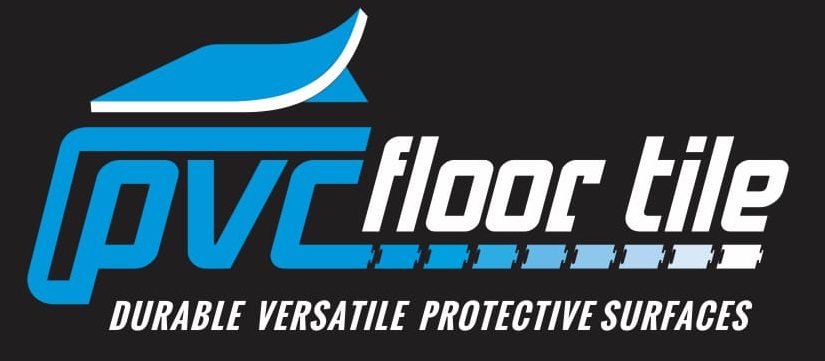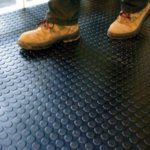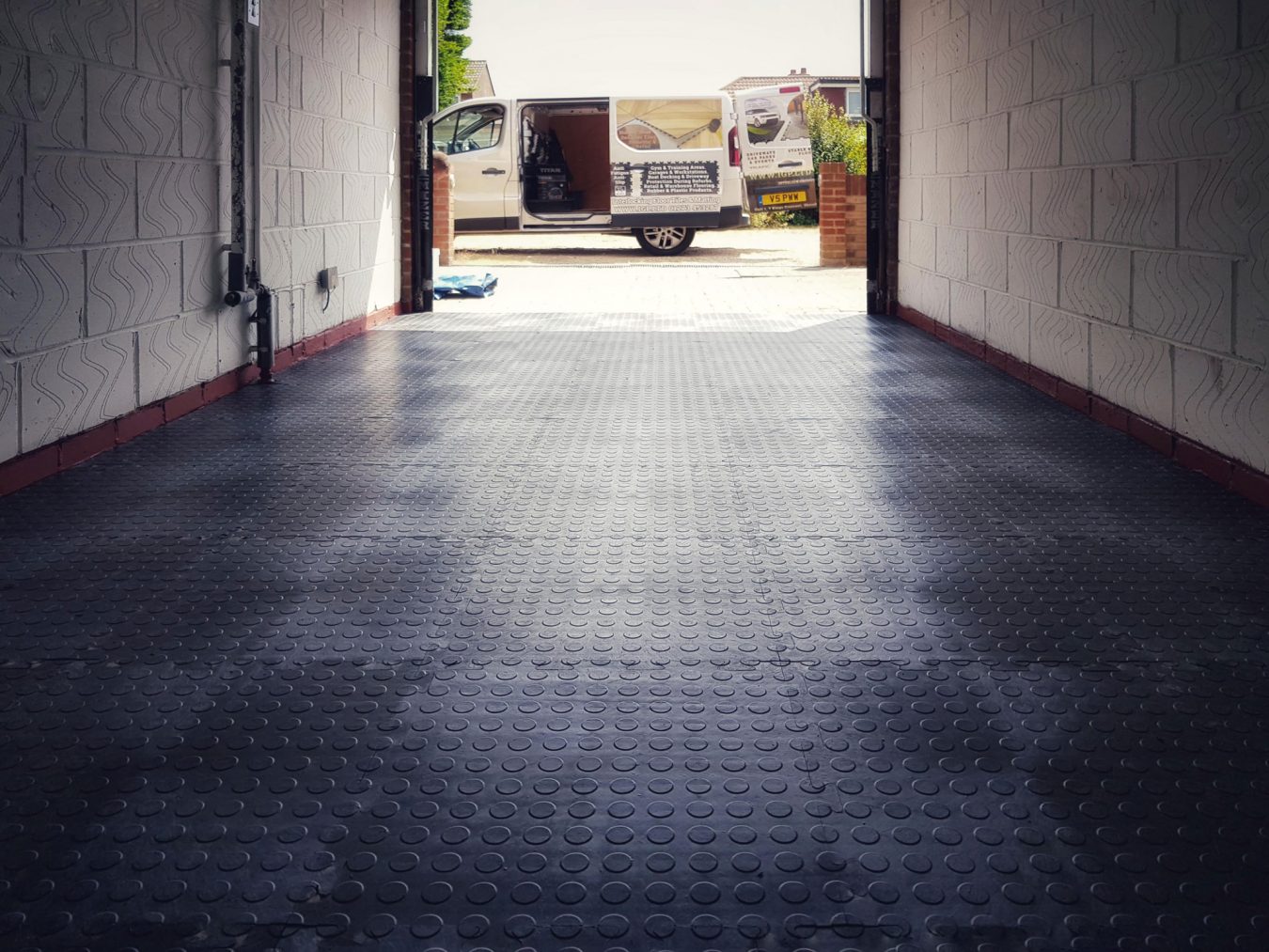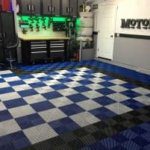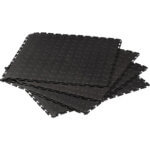5 Types of Flooring Options
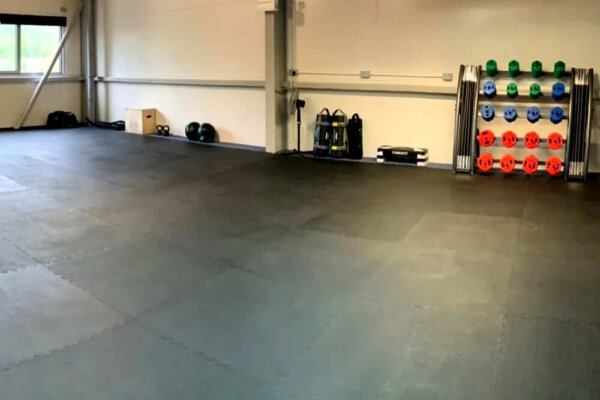
Flooring is the act of applying a finishing touch on the floor so that people can be able to walk on it. The floor covering is there to provide the following uses are, Feet Comfort, Protection and durability of the floor, Give aesthetic value and appearance, Colorful feel, Impervious property, and Cleanliness.
There are several floor types that industrial areas can choose from, depending on how you want to achieve one of the 6 uses:
Cement Flooring
Cement floors are one of the hardest floor types available for industrial flooring. It is made from concrete mixed with concrete and water to give it a hardened feel. This one of the oldest types of flooring which is still available till today.
It is one of the cheapest floor ideas for industrial areas and hence most popular of all floor types where feet comfort is not essential. It is easier to clean as a mop and a bucket of water with floor detergent is only needed to clean it.
It does not require vacuuming; A colorful feel can be provided by just painting the floor with any color of your choice. The only drawback of this action is the floor needs to be periodically painted if there is heavy foot traffic movement.
Cement flooring is very impervious and hence provides a durable floor characteristic that most of the floor types don’t provide, hence it is not affected by the moisture of floods. It, however, has one disadvantage when it comes to heavy commercial vehicles such as forklifts are needed to pass through them, within a shorter space of time they will begin to disintegrate.
Hence it is advisable to put an extra layer of rubber flooring or Pvc interlocking locking tiles to give it an extra hardening edge.
Carpet Floors
Carpet flooring is another type of flooring that can be considered in light industrial areas. This type of flooring can provide feet comfort than any other industrial floors available.
Only heavy-duty carpets with much grip are recommended to be applied in these instances. It protects the floor only to the extent of light traffic of humans and very light machines like sewing machines. Above all these, the floor can easily disintegrate.
Carpet flooring, therefore, gives an average aesthetic value than cement flooring and rubber PVC tiles or rubber floor tiles. Therefore where heavy-duty commercial movement is required, carpet flooring is not the best option, Advised to use rubber flooring and therefore the carpet would have to be removed as rubber flooring cannot be placed on top of the carpet unlike in a cement situation.
Carpets can come in many different colors which cannot be discolored and provides an aesthetic value. It should be noted that carpets generally are pervious or porous therefore where there can be a lot of moisture and in case the floor is flooded, it can lead to it getting rotten.
Carpets generally by their nature are fibrous and contain hidden dust dirty and can be cleaned by both applying a brush and vacuuming. It is not one of the cleanest floor types available.
PVC Rubber Flooring
Pvc flooring is one of the recently developed type of floor that was introduced a couple of decades ago to cater for the shortfalls of other types of flooring in heavy industrial areas. Pvc flooring was introduced specifically to cater to commercial and industrial needs.
It is both impervious and durable.
Pvc floor tile is the only heavy-duty floor that allows commercial vehicles and other heavy movements to take place on it without deforming the floor. This type of floors can withstand very high temperatures of over degrees without being affected. Though this type of floor is quite durable, it is not one of the best appearance-wise, though to improve the aesthetic value the installers will have to alternate different colors.
Pvc floor tile is impervious and easy to clean, it has the same properties as a cement floor type. The only drawback provided by PVC floor tiling is that it is not great in appearance and that it cannot be installed straight into the ground without concrete flooring, therefore some people will take it as an extra cost, but the benefits of having this far outweigh the reasoning of not put it in an industrial area.
Wood Flooring
Wood flooring as the name suggests, it is the floor made from wood, there are many wood floor types, they range from natural wood to engineered wood.
- Engineered wood.
It is a type of wood that has a veiled expensive top finish and a bottom cheaper wood, overall, that make sit cheaper than natural hardwood. Because it has a thin veil, it can easily scratch and therefore less likely to be used for heavy industrial use.
- Hardwood floors
Hard floors are an expensive type of flooring, it is hard-wearing and it carries high impervious properties than carpet floors, it is great for commercial flooring but then again it is not the best of flooring when it comes to heavy-duty machine movement like forklifts therefore again PVC floors are recommended in only areas where there is traffic movement. One can even put rubber floors on top of hardwood to increase floor durability.
Ceramic Floors
Ceramic tile is one of the durable materials for floors, it can be used as an industrial flooring product. It is easy to clean and cannot fade on its color and is very versatile in terms of its are of uses, mostly it is used in household areas.
It is a very lost cost form of tile and it has a very high-water resistant property. It will not change in high and low-temperature areas
It has very few drawbacks, in that it looks like plastics, and it is very difficult to repair.
Again, when it comes to the movement of forklifts and other machines, it is advisable to include PVC flooring on only the areas that are affected by this movement.
